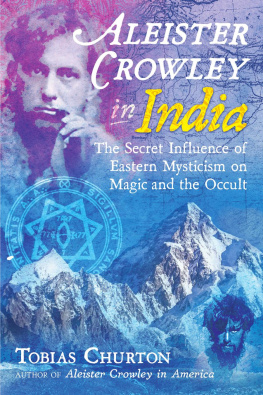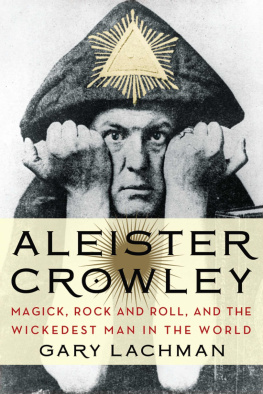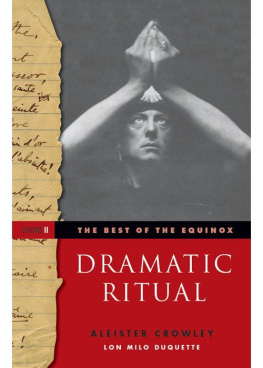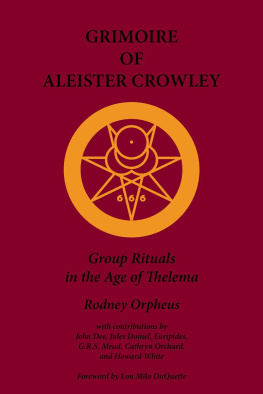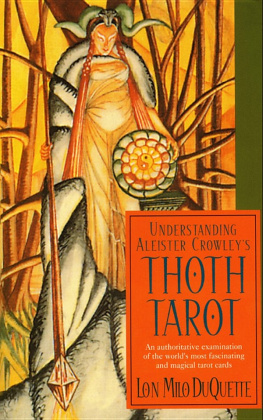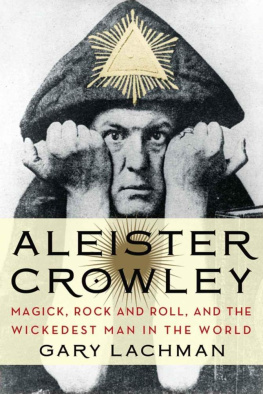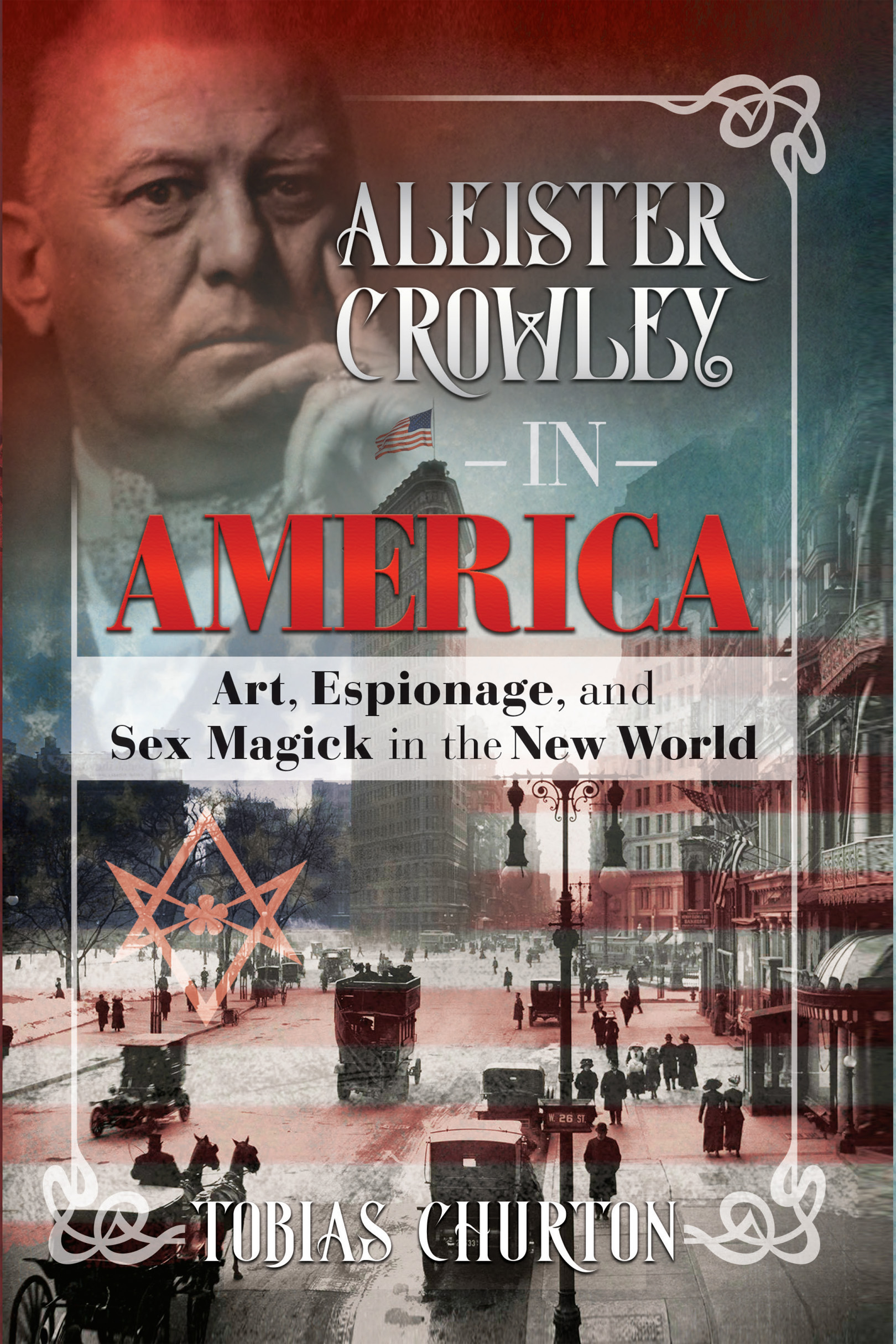
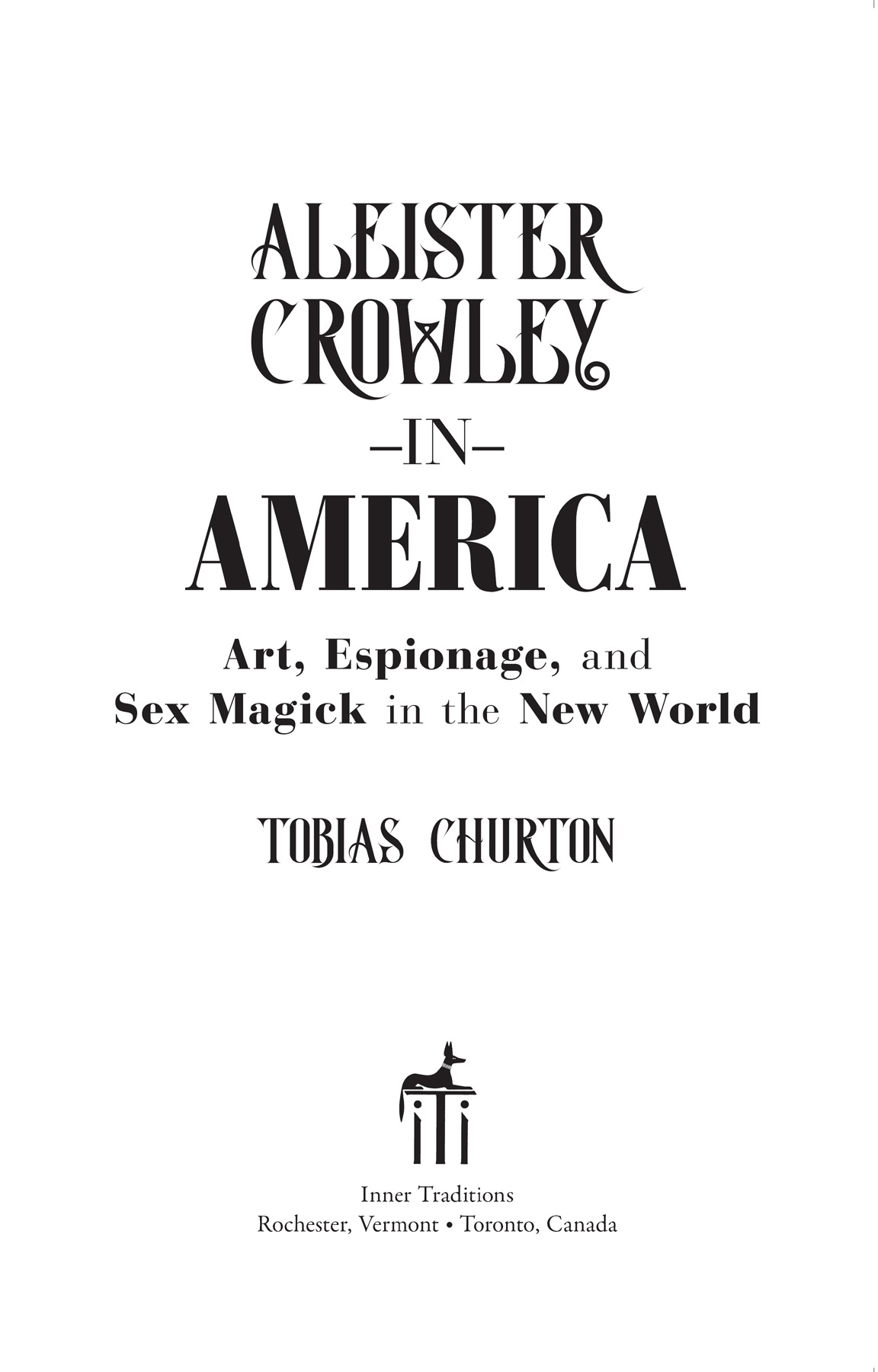
ALEISTER
CROWLEY
IN
AMERICA

Aleister Crowley in America focuses sharply and drills down into Crowleys formative U.S. period, burgeoning with rich and surprising depth beyond what is possible in a life-spanning biography. This story deserves a book of its own, and Tobias Churton demonstrates here that the Beast is indeed in the details.
RICHARD KACZYNSKI, AUTHOR OF PERDURABO: THE LIFE OF ALEISTER CROWLEY
Churton has sifted through a mass of materialfrom long-neglected documents to the latest researches of contemporary Crowley scholarsto put together this comprehensive and intriguing study of the years the Beast spent in America. He brings fresh eyes to old controversies, such as the true nature of Crowleys political activities during the First World War, and presents a work that anyone interested in the history of Crowley and his circle will read with enthusiasm.
KEITH RICHMOND, CO-OWNER OF WEISER ANTIQUARIAN BOOKS AND AUTHOR OF PROGRADIOR AND THE BEAST
This beautifully produced and richly documented history tracks and clarifies Crowleys myriad experiences in America. Tobias Churton admirably sorts out fact from fantasy and shines an illuminating light on a misunderstood facet of Crowleys career.
MITCH HOROWITZ, PEN AWARDWINNING AUTHOR OF OCCULT AMERICA
Way beyond the standard Crowley hagiographies, Churtons books always put the Great Beast in cultural context. This fascinating must-read is no exception; its an invaluable, well-researched, and highly entertaining insight into the great magicians life, thoughts, and scandals during his American adventures.
CARL ABRAHAMSSON, AUTHOR OF OCCULTURE: THE UNSEEN FORCES THAT DRIVE CULTURE FORWARD AND REASONANCES AND EDITOR OF THE FENRIS WOLF
Magician Tobias Churton has successfully cast a spell, transforming his 750-page comprehensive scholarly tome into a gripping and obsessive page turner, leaving one wishing for more. Replete with new and exciting details and interpretations of Crowleys time in the New Worldand of the multiple denizens of his exciting and unique social circlesthe book includes previously unpublished manuscripts, letters, and photographs. Churton furnishes the reader with a sensitive and intimate portrait that brings Crowley to lifeas if we are invited to a convivial conversation or private dinner with the Magus himself. Truly an outstanding, enjoyable, and invaluable book!
JAMES WASSERMAN, AUTHOR OF TEMPLAR HERESY: A STORY OF GNOSTIC ILLUMINATION
Crowley had a great hunger for almost everything he ever thought of or saw. He was economical with the truth, with his own money, and with his loyalties, butand it is a big butthe scope and scale of America thrilled him. The vitality of the big cities, the newness and esoteric searching of the West Coast made him delirious with a big, greedy joy. He loved the States for nearly thirty years, as it gave him a dedicated group of very clever people, like Jack Parsons, who practiced what he preached. Tobias Churton has uncovered fresh material on Crowley in biographically fresh territory and has once again written a very fine book.
GERALDINE BESKIN AND BALI BESKIN, OWNERS OF THE ATLANTIS BOOKSHOP, LONDON
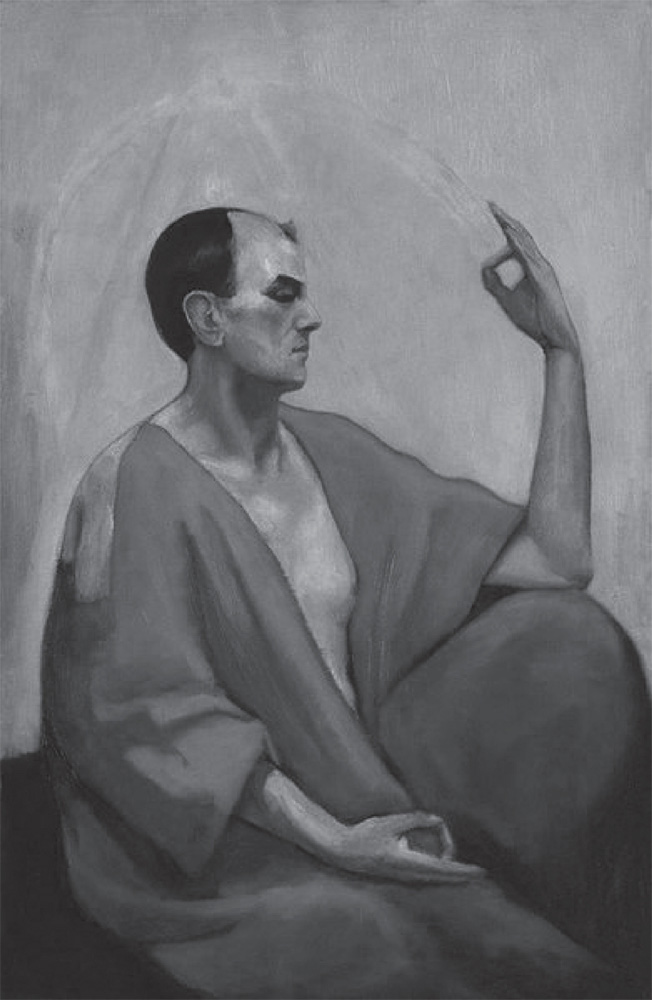
THE MASTER THERION by Frater T. A. T. K. T. A. (Leon Engers Kennedy). The Master is represented in His holy meditation. About Him flames the Aura corresponding to that particular Trance as directly observed by the artist, who possesses the Power of True Vision. From the frontispiece to The (Blue) Equinox, Vol. III, No. I; Universal Publishing Company, Detroit, March, 1919
Preface and Acknowledgments
It was, I think, the late Gerald Suster who dubbed Aleister Crowley the Winston Churchill of Magick. Near contemporaries, Churchill and Crowley had more in common than has been fairly recognized. One of those shared features is the sheer weight of information available concerning their respective careers and the high degree of controversy about aspects of each of their activities.
When I began writing my own biography of Crowley (Aleister Crowley: The Biography) in 2008, I was very conscious of the late Martin Gilberts bulky, eight-volume Churchill biographyall of which, Im happy to say, I had read long before with relish. As in Churchills biographical case, a single volume was really inadequate to the purpose, given the growing extent of serious Crowley studies, and I ran into trouble over length with the original publishers. This led to agonizing delays in publication, only resolved at last by the involvement of a new publisher. If my subsequent study, Aleister Crowley: The Beast in Berlin (2014), has not proved that the days of single-volume biographies of Crowleys life are over, then this book certainly should. Feeling the weight of this tome, I cling for encouragement to the fact that the book that turned me on to Crowley in the first place, back in 1978, was Crowleys autohagiography, known generally as the Confessions. Nine hundred sixty pages in length, and all contained in a single handsome volume, it still only took Crowleys life storyas he chose to tell itup to 1922, with twenty-five years left unaccounted for. If, as some would believe, Crowleys life is not worth taking seriously, then it would not be worth writing about at all. Such might, in my view, only be fairly said of some of his detractors.
This, the first properly researched account of Aleister Crowleys extensive and quite fascinating adventures in America, has been rendered even more challenging an exercise by the appearance in 2008 of Professor Richard B. Spences Secret Agent 666: Aleister Crowley, British Intelligence, and the Occult. Spences hypothesis that Crowley was an intelligence agent, or at least asset, for much of his mature life, has truly thrown the cat among the pigeons of Crowley studies and forced open-minded scholars to look much more closely at many lacunae regarding Crowleys activities and motives. I have had to deal with the many questions raised by Spences hypothesis head on, and with thoroughness, as the picture changes very quickly as the kaleidoscope of extant evidence is viewed from different angles. There is mystery.
Furthermore, there has long existed the extremely vexed question of whether Aleister Crowley was a traitor to his country of birth during the period 1914 to 1917. This has proved itself a supremely difficult issue to wrestle with due to the fact that intelligence services that might have inherited key documentation apparently do not consider the questions involved worth investigating in the public arena, for such is, understandably, not those organizations purpose. Reluctance inherent to these systems is partly reinforced by the nature of Crowleys popular reputation, particularly in Great Britain, and partly because the question hinges on the aforesaid theory regarding Crowleys alleged intelligence role, a difficult matter to be sure. Documents declassified and released in the United States tell a nuanced, if still complex, story to that which has become a more or less official spectrum of views in Great Britain.
Added to Spences speculative intelligence scenarios, recent discoveries regarding Crowleys activities in Mexico in 1900 to 1901 raise similar questions to those pertinent to his World War I record. These I have also had to examine carefully and have reached my own conclusions on the issue, given the evidence currently available. All of these issues are critical to assessing Aleister Crowleys personal integrity, something he insisted on with great vigor in his
Next page

